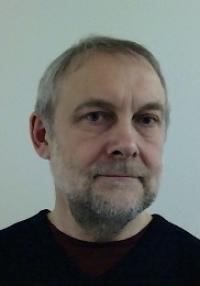Oleg
Denisenko
PhD

related links
bio
Our lab is interested in the mechanisms that control gene expression in kidneys during development and disease. Chromatin, as a complex of DNA with histones, other proteins and non-coding RNA, plays an essential role in formation and long-term maintenance of gene expression states. Transcribed genes reside within the easily accessible euchromatin, whereas repressed genes are localized within the structurally compact heterochromatin. Transitions between the open and closed chromatin states are regulated by epigenetic processes, which involve histone and DNA modifications. The goal of our studies is to define key epigenetic alterations that govern changes in gene expression and to trace them back to upstream transcription factors and signaling cascades. This provides not only understanding of regulatory processes but also identifies points for potential interventions. Several models systems are currently explored. In one, Epigenetic Mechanisms of Aging, we examine chromatin changes that drive gene dysregulation and associated aging nephropathy in old kidneys. Contribution of these epigenetic changes to hyper-reactive inflammatory responses associated with old age is also examined. In another model, Fetal Development and Adult Disease, we explore links between intrauterine environment and risks of adult chronic diseases. Under-nutrition during gestation in mammals slows down fetal growth (intra-uterine growth restriction, IUGR), causes low birth weight, increases risk of developing chronic diseases, and decreases life span. In several animal models we found that poor intrauterine environment alters global rates of transcription, which persists after birth. These long-term transcriptional changes involve epigenetic mechanisms initiated very early during development, before embryo implantation. To facilitate epigenetic studies, we have developed several powerful novel techniques, including Fast chromatin immuno-precipitation (Fast ChIP) and Matrix ChIP. Yet, even with advanced tools, interpretation of results of ChIP analysis in animal tissues composed of multiple cells types is a challenge, therefore we have also established a novel technology for visualizing and quantification of epigenetic marks at specific genomic sites in individual cells.
education & training
PhD, Molecular Biology, Moscow State University, Moscow, Russia (1988)
Postgraduate Research, Institute of Protein Research, Puschino, Russia (1980-1985)
Scientist, Institute of Protein Research, Puschino, Russia (1985-1990)
Visiting Scientist, The Weizmann Institute of Science, Rehovot, Israel (1991)
Senior Fellow, Department of Medicine, University of Washington, Seattle, WA (1994-1999)
honors
Award from International Science Foundation, USA
American Cancer Society, Eleanor Roosevelt International Cancer Research Award
Award from American Heart Association
Award from Bill & Melinda Gates Foundation
Visiting Professorship, Gerald Kerkut Foundation, UK



